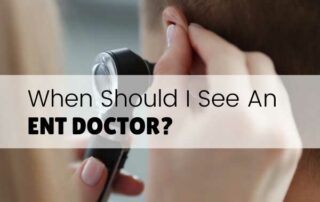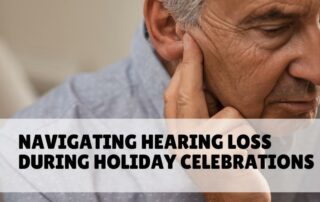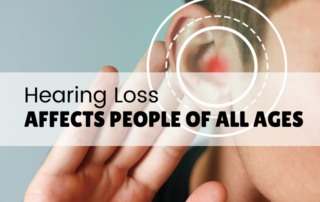Hearing Loss
About 37.5 million Americans have hearing loss and about 20% have done something about it.
Hearing loss affects individuals of all ages. Many people are aware that they have some degree of hearing loss but are reluctant to do anything about it.
Hearing loss in the average adult tends to gradually decline with time until it seems that suddenly you can no longer hear. At this time you may attempt to tell your physician about your hearing loss or perhaps exhibit signs of possible hearing loss listed below.
Port Huron Audiology Services
From a full range of diagnostic services including hearing testing, pressure testing, and balance testing, to rehabilitative services and hearing aids, the Hearing and Balance Center can help!
Signs of Hearing Loss
Risks Factors For Hearing Loss
Medical Conditions Linked To Hearing Loss
Three Types of Hearing Loss
Effects of Untreated Hearing Loss
Of the 37.5 million Americans who have hearing loss, 60% are below retirement age and 80% of them have hearing loss that is rehabilitative with the use of hearing aids. However, only about 25% actually use amplification. These individuals are reaping the benefits that amplification provides. The other remaining individuals are seeing their hearing loss affect many aspects of their life.
Untreated hearing loss hurts the hearing impaired individual in many ways. It can negatively affect every aspect of their life: Job performance, Wages, Personal relationships, Health. Untreated hearing loss can also lead to auditory deprivation.
People in the work force may not do anything about their hearing loss until a mistake is made, they lose their job or they finally notice they can no longer hear. This is usually 10-15 years after their hearing has started to deteriorate. Within this time the person is suffering from potential wages that could have been gained through promotions and bonuses. However, their supervisor will see poor job performance and less social interaction among co-workers and supervisors inhibiting increased earnings.
Research has shown that untreated hearing loss can affect household income by $23,000 per year and those with treated hearing loss receive about $10,000 more in income than those with untreated hearing loss.
Over time this quickly adds up and can greatly impact ones family and lifestyle.
No matter what degree of hearing loss a person may have, quality of life can be impacted. Someone who leads a very social life may start to withdraw from activities, leave events early, and become much less involved with family and friends. This is not because they do not enjoy the company but more so because it takes a lot of energy to hear in these complex listening environments. This causes a person to become more easily fatigued when having to strain to hear conversations and frustrated when communication does not flow easily between parties. Communication partners also become frustrated and may not want to converse with someone who is having difficulty following the conversation. This negatively impacts a person’s quality of life.
Sometimes these signs of withdrawal are seen as depression or dementia and therefore the person is treated for these symptoms. However, the real underlying reason is the inability to hear. When the hearing loss is rehabilitated a majority of individuals become socially active, interact with family and friends, enjoy going to social gatherings, essentially “become their old self” again. Even the signs of depression and/or dementia may subside.
Aside from a negative impact on overall quality of life, the person may begin to experience auditory deprivation. This means that the brain becomes affected in how it interprets speech sounds. To the individual, speech will sound distorted, similar to a radio station that is not properly tuned. This loss of clarity makes it harder to understand and process speech. The more severe one’s ability to process and understand speech, the harder it is to successfully use amplification. However, if hearing loss is treated early on this can be prevented and hearing impaired individuals are more successful hearing aid wearers. The saying “use it or lose it” fits this scenario perfectly.
Untreated hearing loss can affect all aspects of one’s life, their social and professional relationships, quality of life, and earning power. Yet by simply seeking help from an audiologist and rehabilitating the hearing loss, hearing impaired individuals can lead a fulfilling life just like any other person.
Related Articles
When Should I See An ENT Doctor?
If you have symptoms related to your ears, nose, or throat, it's a good idea to see an ENT provider. ENT doctors are specialists who are trained to diagnose and treat conditions affecting these areas of the body. Some examples of when you may want to see an ENT doctor include if you are experiencing chronic ear infections, sinus infections, allergies, and snoring.
Hearing Loss at Holiday Celebrations
The holiday season is officially upon us, and all the joyous festivities and family gatherings that come with it! But if you are suffering from hearing loss, big family get-togethers can present a unique set of obstacles. It isn’t always obvious to others you’re experiencing, and it can be easy to misinterpret hearing challenges as frustration, anger, or withdrawal.
Hearing Loss Affects People Of All Ages
Do you work in a noisy place, use headphones regularly, or visit places with loud music? There are many ways to make listening safe, and with over a billion young people at risk of avoidable hearing loss due to recreational sounds (Airpods, earbuds, concerts, loud music, bars), hearing loss is a real concern for people of all ages. 1 in 2 young people are at risk of hearing loss due to unsafe listening.



